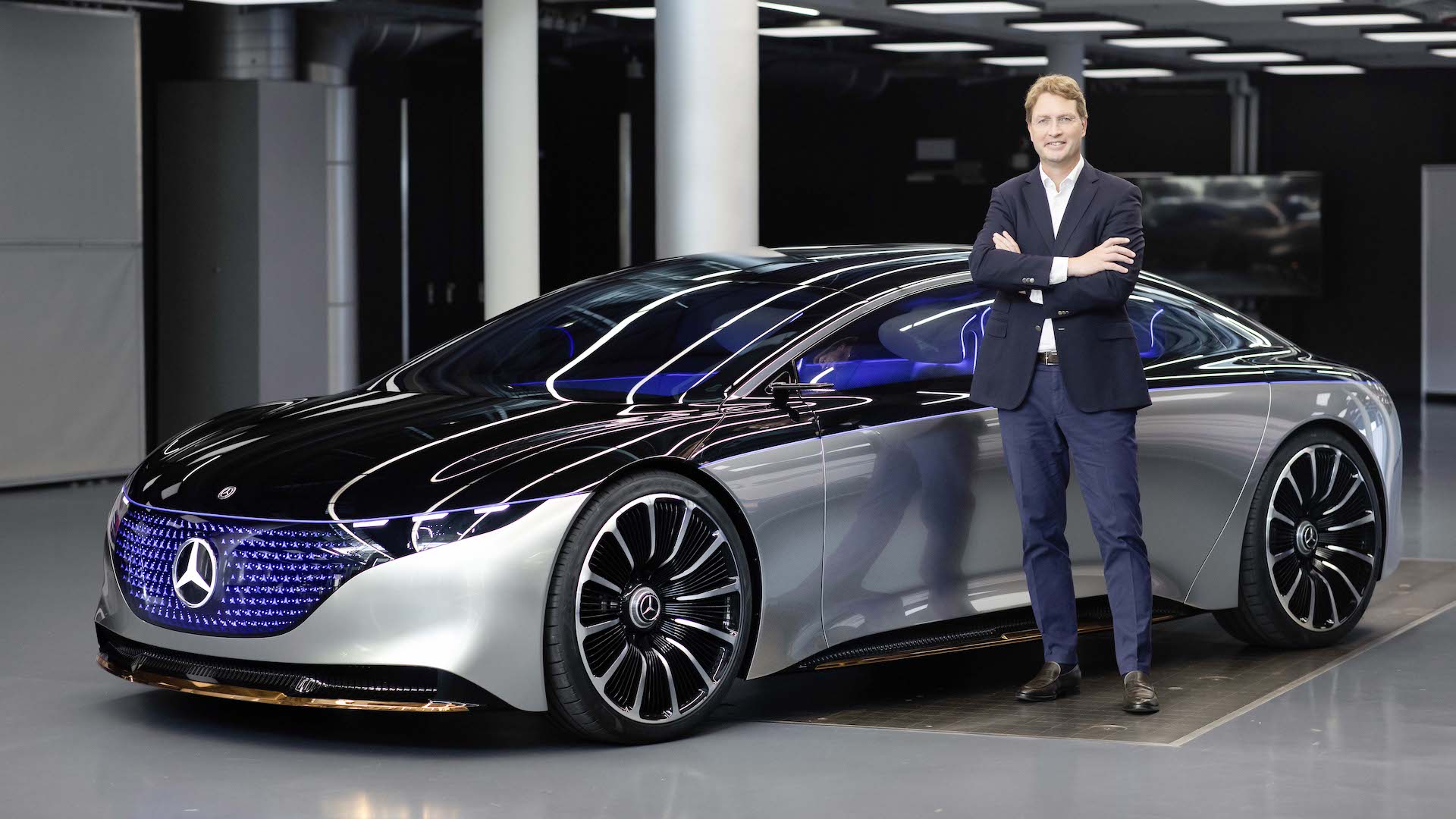

Mercedes-Benz’s first mass-produced electric vehicle the EQC crossover may be a plush, refined argument for electrification, but when it came to range, it’s something of a flop. A mere 220-mile range (EPA) isn’t enough to nab positive headlines, and with 2020 production numbers expected to be kept low due to battery supply issues, it’s neither setting the sales charts alight nor capturing the interest of EV adopters. But that may change for Mercedes’ upcoming electric flagship, the EQS sedan, which Daimler CEO Ola Källenius confirmed will have a range to challenge Tesla.
Speaking during Daimler’s annual board meeting, which was moved online due to COVID-19, Källenius reaffirmed that the 435-mile range promised for the Vision EQS Concept will indeed be true of the final production car. There is, of course, an asterisk to that range figure, which is that it will be achieved on the international WLTP test metric as opposed to the United States and Canada’s EPA metric, which returns lower range figures than those of the WLTP system—with the notable exception of the Tesla Model S Long Range Plus.
Proudly boasted as the first electric car with a 400-mile range, the 402-mile (EPA) Model S LRP is rated at a mere 379 miles on the WLTP test, which could give the EQS up to a 56-mile range advantage. Things could further tip the EQS’s way should its maximum charge rate match that of the concept’s 350 kilowatts, which could allow the EQS to recharge from zero to 80 percent in under 20 minutes using the 350-kW charger networks being collaboratively funded by major automakers. Tesla’s Supercharger Network, by comparison, is only capable of up to 250 kW, and only on “V3” Superchargers, which currently comprise no more than a minority of Supercharger stalls.

Mercedes-Benz Vision EQS Concept
, Daimler
Mercedes-Benz Vision EQS Concept
, DaimlerTesla’s flagship sedan may retain a performance advantage over the EQS, whose concept was rated at a 4.5-second zero to 60 time and a top speed of 124 mph, versus the Model S LRP’s 3.6 and 155 respectively. Performance, however, has always been little more than a garnish to this class of vehicle, whose buyers have long valued interior finish and ride quality over quarter-mile times. And in these fields, the EQS forerunner, the S-Class, has never exactly brought up the rear.
Come 2023, both the EQS and Model S could find themselves challenged by an equivalent, electric BMW 7 Series, which reports allege could be followed in 2024 by a new Audi flagship called the A9. As more companies challenge Tesla’s claim to the throne, it’s clear that the Fremont-based automaker has strides to make if it wants to keep its long-in-tooth S at the head of the pack.

Got a tip? Send us a note: tips@thedrive.com
h/t: Motor1